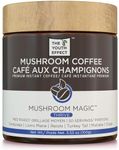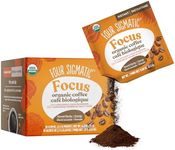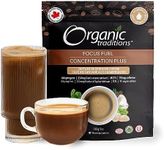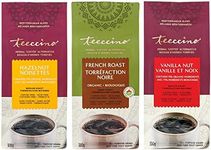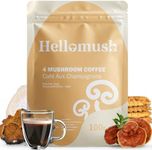Best Coffee Alternatives
From leading brands and best sellers available on the web.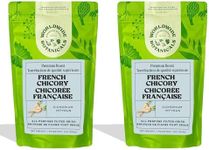
Worldwide Botanicals
Worldwide Botanicals French Chicory Root - Brew Like Coffee, Blend Roasted Chicory Root With Coffee, Prebiotic Coffee Alternative, Acid Free, Caffeine Free, Kosher, 454 Grams, Pack of 2

Organic Traditions
Organic Traditions Focus Fuel Mushroom Coffee – Organic Instant Mushroom Coffee with Lion’s Mane, Adaptogens, MCTs & Coconut Milk Powder – Supports Focus, Memory & Creativity (20 Servings) 280g/10oz
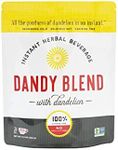
Dandy Blend
7%OFF
Dandy Blend Instant Herbal Beverage With Dandelion, 400g

Caf-Lib
CAF-LIB Original Blend | Coffee Substitute | Caffeine Free Alternative | Natural & Flavourful | Barley & Chicory | Grain Beverage | Perfect for Day or Night | 150g
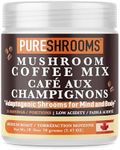
PureShrooms
*Made in Canada* PureShrooms Instant Mushroom Coffee | Ultra Concentrated Organic Lion's Mane, Reishi, Cordyceps | Made in Canada | Medium Roast, 100% Arabica Beans Keto-Friendly Sugar-Free Fair-Trade | Boost Focus, Energy, Immunity | Adaptogenic Coffee Substitute, (35 Servings - Net Wt.70g)

PureShrooms
Balance & Defend Mushroom Coffee - Ashwagandha & Chaga | Immune Support, Stress Relief - Made in Canada 340g / 12oz

PureShrooms
7%OFF
*Made in Canada* Mushroom Ground Coffee - Mind & Body w/ Ultra Concentrate Lion's Mane, Reishi, Cordyceps Extracts - Nootropic Adaptogen Coffee Alternative/ Substitute, Natural Energy with No Jitters & Crash - 0 Sugar, No Preservatives or Artificial Flavors, Non-GMO & Soy-Free - Medium Roast (340g, Mind & Body)
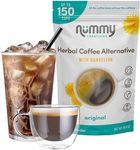
Nummy Creations
Nummy Creations 150 cup Original Instant Caffeine-Free Coffee Alternative with Dandelion. Coffee Substitute, Chicory Coffee 300g
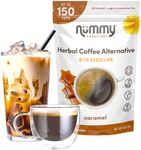
Nummy Creations
Nummy Creations 150 cup Caramel Instant Caffeine-Free Coffee Alternative with Dandelion. Coffee Substitute, Chicory Coffee 300g

